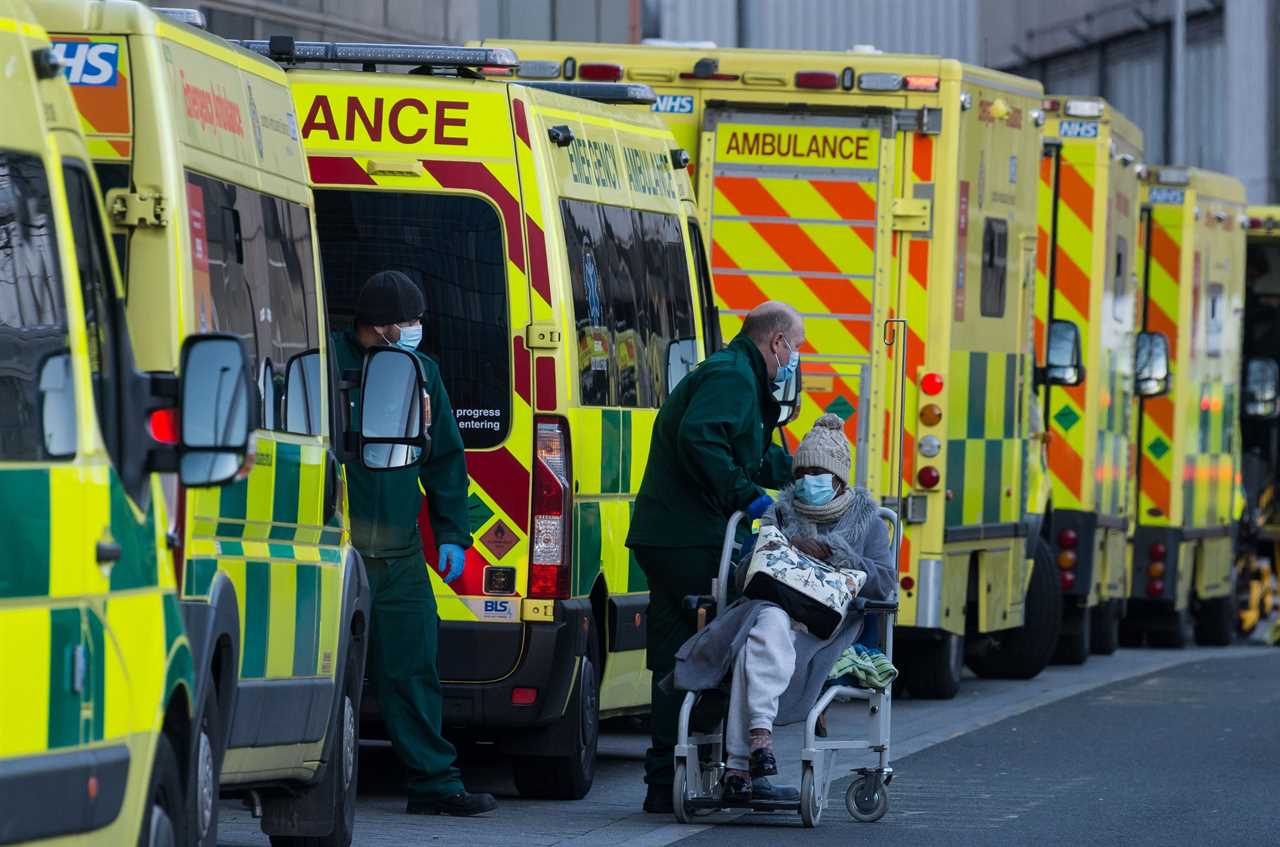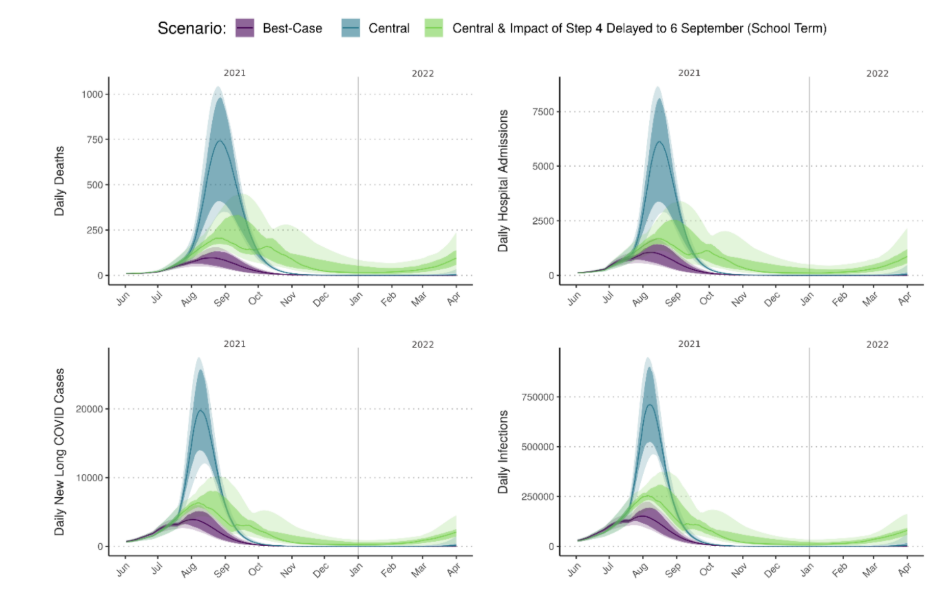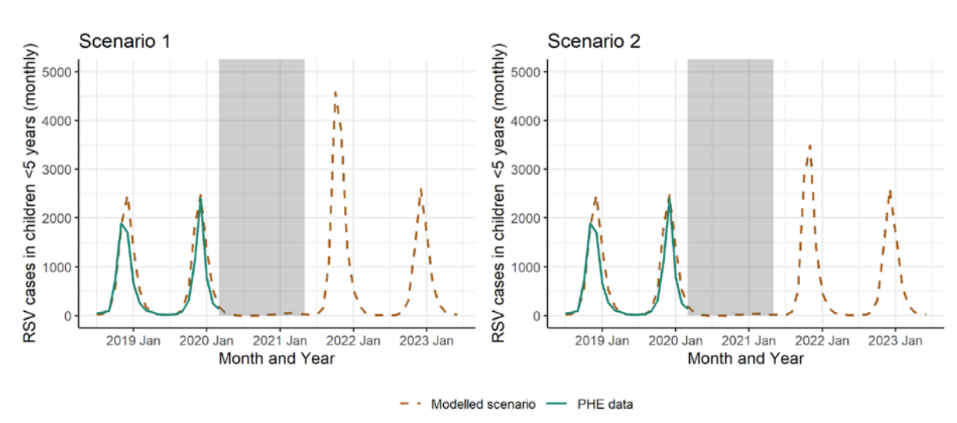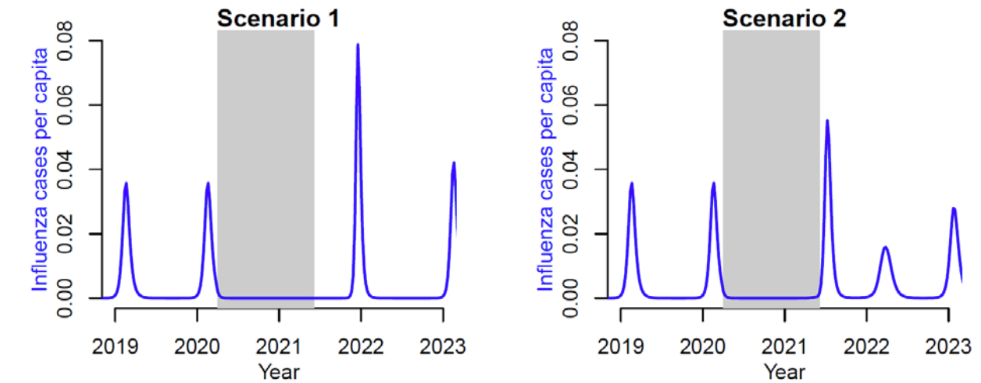THE NHS must brace for its worst winter ever, experts have warned – amid fears it could reach breaking point.
As the UK looks forward to coming out of restrictions, a gloomy report from the Academy of Medical Sciences (AMS) urges for preparation NOW to avoid “worst case scenarios” of up to 60,000 flu deaths.

The group of 29 leading experts say there are a number of concerning factors building up towards the winter – already the worst time of year for the health service and execpted to be even more bumpy in 2021.
The main concern is a “triple whammy” of Covid, flu and respiratory syncytial virus (RSV) – which people have typically caught by the age of two.
With Covid restrictions becoming largely voluntary from July 19, it means other viruses that were suppressed over the past 15 months will start circulating in high numbers again.
And the consequences could be even greater than a “normal” year pre-Covid because there are more susceptible people and children to catch infections.
Immunity to the two viruses is likely to have waned during the Covid pandemic as people stayed indoors – the extent to which is unclear.
Modelling from the group reveals outbreaks of flu and RSV in England this winter could be between 1.5 and two times larger than a normal year.
Between 15,000 and 60,000 people could die from flu this winter, according to modelling, compared to a typical year of 10,000 to 30,000 in England.
There could be between a 25 and 65 per cent increase in RSV cases in children under five years old, depending on levels of immunity in mums.

Read our coronavirus live blog for the latest updates
A possible 40,000 children could be hospitalised with RSV, compared to a typical 20,000.
“There is a risk that children’s wards and paediatric intensive care units (PICU) may be overwhelmed”, AMS warned.
The surge in flu and RSV could coincide with the third wave of Covid, which is expected to peak in the late summer but could come later when schools reopen.
This could cause confusion among the public as the three have similar symptoms, with co-infection of more than one virus also possible.



On top of this there is a huge backlog of five million people waiting for NHS treatment.
Staff shortages, reduced bed capacity due to infection control, and delayed diagnoses of other diseases are also piling on the pressure.
All these together could place “substantial pressure” on the NHS, experts warned, which will carry on well into the future as the UK learns to “live with Covid”.
The report urges for action – including to scale up testing for flu, tell the public to keep wearing face masks and get as many people vaccinated against viruses as possible.
Uncertainties
Prof Azra Ghani FMedSci, a member of the expert advisory group for the Academy’s report, said there were high uncertainties about what could happen this winter.
But she told journalists during a virtual briefing: “What is clear is the triple whammy of these infections, on top of the backlog of routine care, is going to potentially disrupt services in the coming weeks and put severe strain on the NHS and staff.”
Asked whether this winter will be the worst the NHS has ever seen, the experts said they “couldn’t answer” and it’s very “unpredictable”.
Prof Ghani, Chair in Infectious Disease Epidemiology, Imperial College London, said: “It could look like a normal year, it could look worse.
“We just do know we have a whole host of factors coming at once. We don’t know what will happen.”
Prof Dame Anne Johnson PMedSci, President of the Academy of Medical Sciences, said: “We always have winter pressures, but they’re going to have new elements this year which we’ve got to think out and mitigate over the summer.”
The severity of this winter depends on a number of “what ifs”, including if the flu has mutated since 2019, how effective vaccines will be against it and the uptake of the jab.
With Covid, even if the third peak falls in the summer as forecast, there is always the risk of a new variant that can evade vaccines and put millions of vulnerable people at risk.
And there will be an epidemic of long Covid the NHS will have to cope with, as current estimates suggest there are 500 new cases per day.
Dame Johnson said long Covid case numbers “could double” from the current one million people.
Before the pandemic, winter bed occupancy in the NHS regularly exceeded 95 per cent.
This year, the NHS has been operating with fewer beds to reduce the risk of Covid spreading between patients.
The NHS, with already burnt-out staff, is also reporting a shortage of nearly 84,000 staff, and 2,500 GPs.
Prep is key
Dame Johnson, a professor of infectious disease Epidemiology at University College London, said “acting now” will build a more resilient NHS.
To prepare, she said all adults need to be fully vaccinated against Covid by September with the addition of a major flu jab and Covid booster campaign.
Transmission of viruses should be controlled with continued measures such as working from home, hand-washing and use of face coverings in crowded spaces.
There are a number of “big challenges” in the NHS which need to be fixed but the scope for doing so was not discussed in the report.
The report said testing needed to be expanded to include other respiratory viruses so that people could instantly know what they were infected with.
And results of tests need to be fast – within 48 hours – so those with the more deadly Covid can self-isolate.
Commenting on the report today, Dr Doug Brown, chief executive of the British Society for Immunology, said: “The last 18 months of the pandemic have been extremely difficult for us all but we must remember that we are not out of the woods yet.
“This comprehensive report paints a concerning picture for the upcoming winter.”
He said efforts to vaccinate everyone against Covid, including in low uptake areas, must be “redoubled”.
“This same impetus needs to be given to the rollout of the winter flu vaccination campaign, which will require significant resources and the success of which will be critical to ensuring the most vulnerable are protected”, he said.
Dr Zania Stamataki, a viral immunologist, University of Birmingham, said: “We would be wise to prepare now for the difficult winter to come.”






